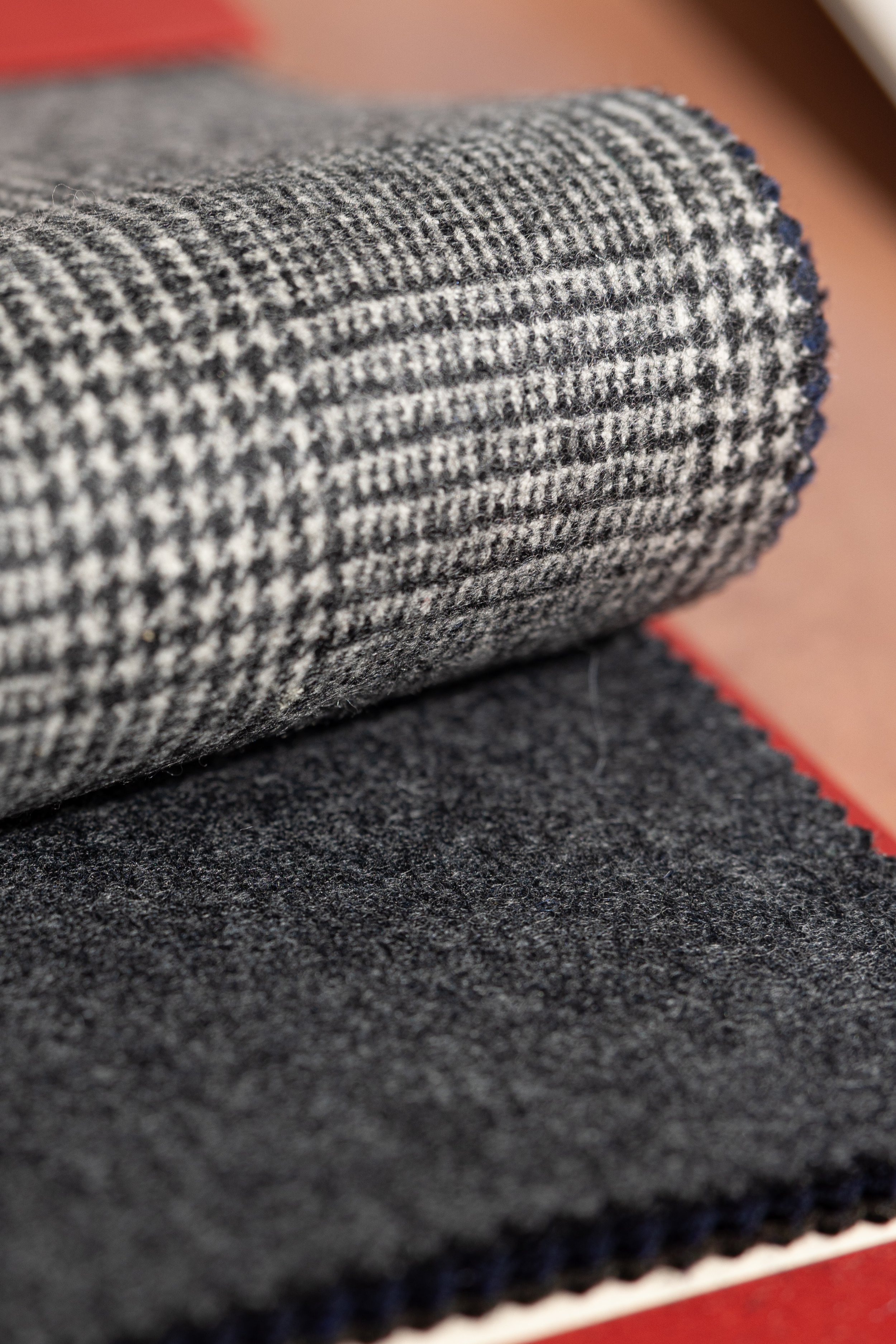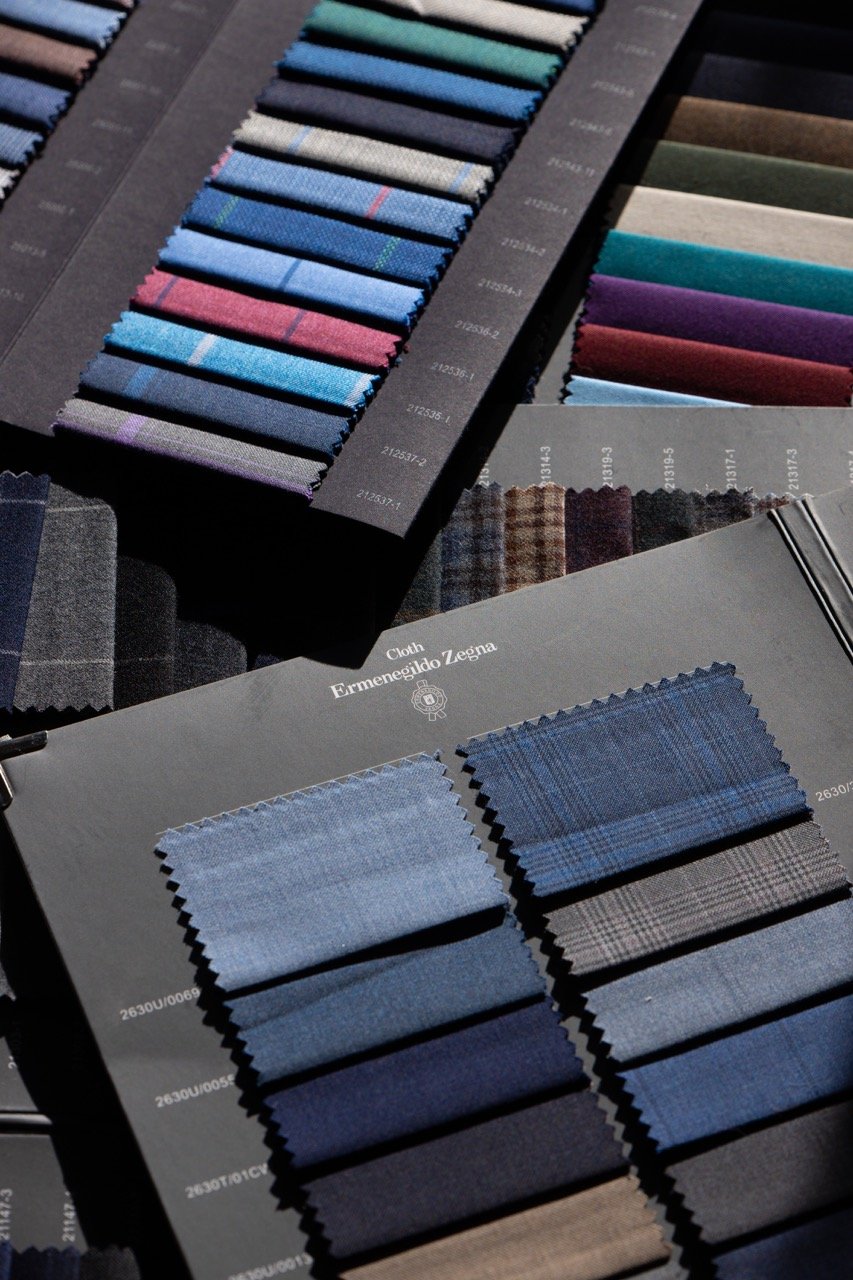Should I Avoid Polyester in My Suits?
The Pros and Cons of Polyester and Synthetic Materials in Suiting Fabrics
When it comes to choosing the ideal fabric for a suit, the debate between natural fibers and synthetic materials like polyester is longstanding. While polyester and other synthetics offer some benefits, their drawbacks can outweigh the perks for many suit enthusiasts. Here, we explore both sides, with a spotlight on why synthetic materials may not always be the best choice.
Pros of Polyester and Synthetic Materials
Cost Reduction
One of the most significant advantages of polyester and similar synthetic fabrics is their affordability. These materials are generally much cheaper to produce than natural fibers like wool, silk, or cotton. This cost efficiency makes synthetic suits an attractive option for budget-conscious individuals or those requiring multiple suits for work or events. Conversely, this is also a common method of increasing margins on the side of the suit manufacturer or custom tailor. A large reason that synthetic fabrics have such a massive marketing push behind them (they’re more comfortable, they’re stretchy, they’re moisture-wicking, etc.) is so manufacturers can pump up the retail cost while reducing the cost of production. Money, money, money.
Stretch and Comfort
Many synthetic fabrics, including polyester blends, offer a degree of stretch that can enhance comfort. This flexibility is particularly beneficial for those who need more freedom of movement in their daily activities, making synthetic suits a practical choice for more active wearers.
Cons of Polyester and Synthetic Materials
Lack of Breathability
One of the most glaring drawbacks of synthetic fabrics is their poor breathability. Unlike natural fibers that allow air circulation, polyester can trap heat and moisture, leading to discomfort, especially in warmer climates or during long periods of wear. As mentioned before, polyester, rayon, and other synthetic materials are marketed as breathable, moisture-wicking, and athletic fabrics but there’s really no governing body that enforces the fact that this simply isn’t true.
Lower Durability
Although polyester can stretch reasonably without ripping, it doesn't hold up well over time. Synthetic fibers are prone to pilling, fading, and losing their shape after repeated washes or wear, which can significantly impact the longevity and appearance of a suit.
Environmental Impact
Polyester and other synthetics are derived from petrochemicals, making their production energy-intensive and environmentally damaging. These fibers are not biodegradable, contributing to landfill waste and environmental pollution long after the garment's life cycle ends. There is a large push for more sustainable fashion, especially with the unmitigated growth and wasteful nature of Shein and Temu, making pieces that will actually last, aka made of high quality sustainable materials, much more sought after.
Less Luxurious Feel
For many, wearing a suit is as much about the feel as it is about the look. Natural fibers tend to offer a softer, more luxurious texture that is often missing in polyester. The tactile experience of wearing a high-quality wool or silk suit simply cannot be matched by synthetic counterparts.
Appearance and Style
Polyester suits can lack the sophistication and elegance that natural fibers exude. The sheen of polyester often appears cheap or artificial, detracting from the overall aesthetic that many seek in a high-quality suit. Again, polyester will also pill, fade, and stretch over time, making the overall appearance look cheap.
Knit Cotton: A Versatile Alternative to Polyester
Knit cotton is an excellent alternative to polyester for those seeking cost-effective and stretchy suiting fabrics. This natural fiber offers several advantages over synthetic materials, particularly in terms of breathability and comfort. Here's why knit cotton is a standout choice:
Natural Breathability
Unlike polyester, knit cotton allows for excellent air circulation, helping to regulate temperature and keep you comfortable throughout the day. This breathability makes it particularly suitable for warmer climates or long hours of wear.
Comfort and Softness
Known for its soft texture, knit cotton provides a comfortable fit that's gentle on the skin. Its natural fibers create a luxurious feel that rivals more expensive materials, making it a popular choice for those who value both style and comfort.
Stretch and Flexibility
Knit cotton naturally offers a degree of stretch, allowing for greater freedom of movement without sacrificing the garment's shape. This flexibility makes it an ideal fabric for suits that need to accommodate active wearers while maintaining a polished appearance.
Affordability
As a natural fiber, knit cotton is generally more affordable than high-end fabrics like silk or wool, yet it can still provide a high-quality look and feel. This makes it an attractive option for those on a budget who do not wish to compromise on quality.
Environmental Benefits
Being a biodegradable and renewable resource, cotton is a more sustainable option compared to synthetic materials derived from petrochemicals. Choosing knit cotton helps reduce environmental impact and supports eco-friendly fashion choices.





